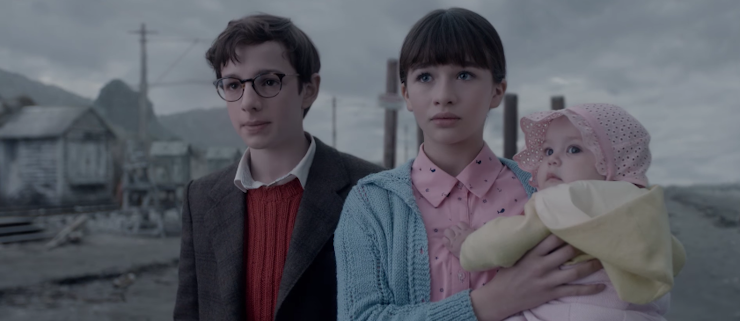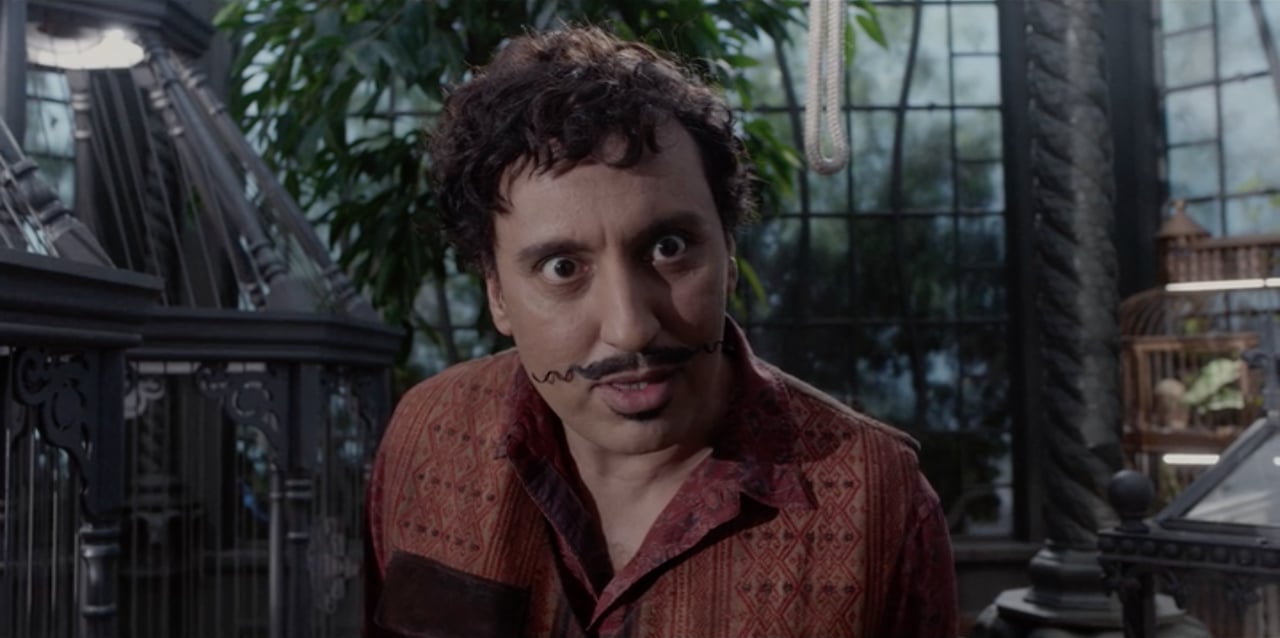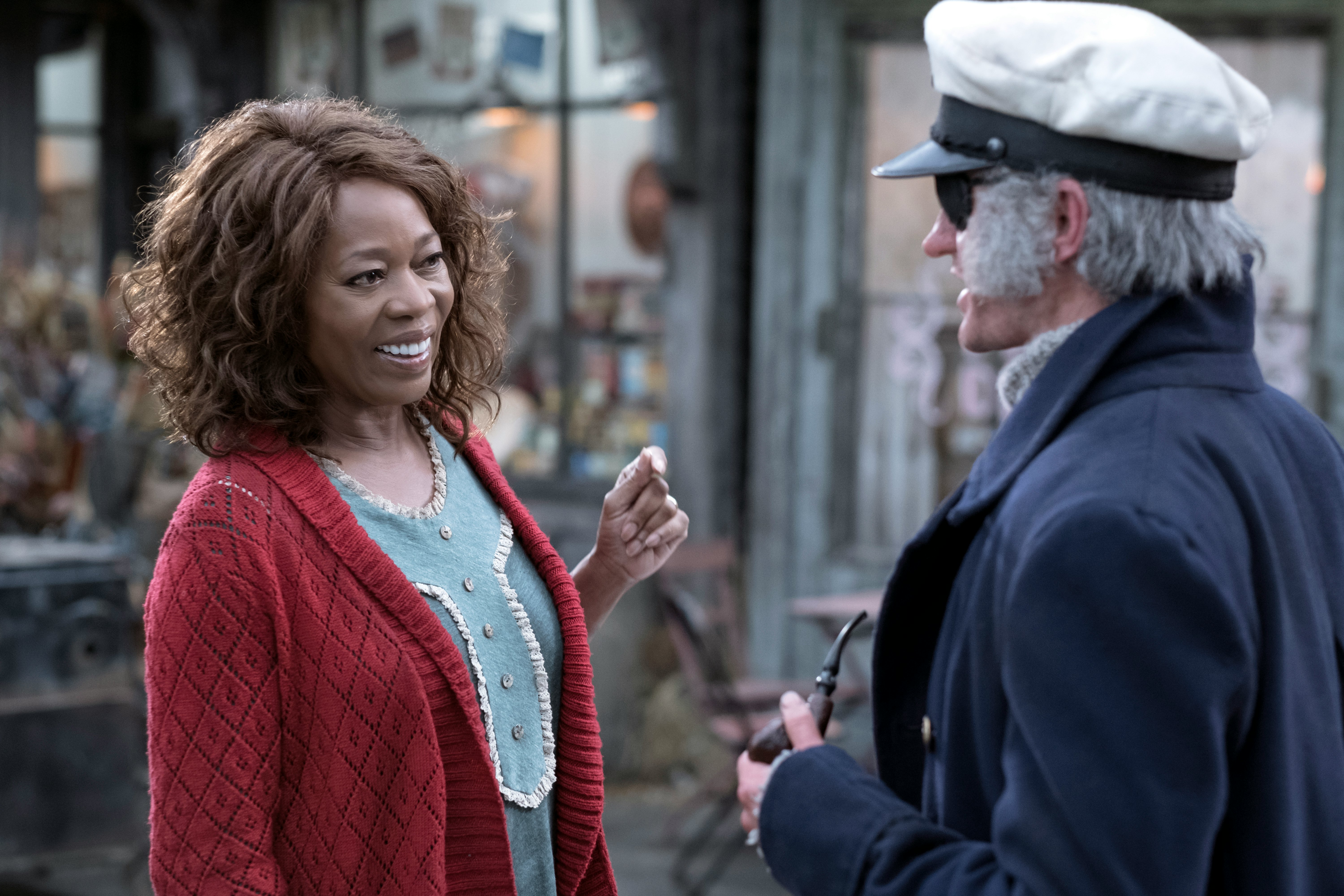"Take your broken heart, and turn it into art," -Carrie Fisher
When I heard that Netflix was creating a TV Show version of one of my childhood favorite book series: A Series of Unfortunate Events. These books connected me and my friends in fifth and sixth grade, especially with my soul sister, Lauren. The series absolutely enraptured me with progressive and quirky characters, the absolute nail-biting terror of Count Olaf, and the weaving mystery throughout all 13 books. It reached the darker, mature parts of me, and unlocked them. And I absolutely loved it - it was a good thing for me. It was one of the books that shaped me into the writer, reader, and consumer of stories that I am.
Last Sunday, two days after the series came out, Lauren and I binge-watched it, complete with leftover Asian food and mug cakes.
follow me on snapchat @hootowltree
As usual, I conduct my reviews by talking about the negative first, and end with the positive.
The Negatives
1. Violet
When I first read the books, I adored Violet. As the eldest, as a massively creative person who loved working with her hands, as a subtle and assertive girl myself, I deeply related to Violet. And when on-screen Violet was short, girly, immature, without much agency, and not at all the tall, strong and inventive girl portrayed in the books.
This partially has to do with Malina Weissman chewing on the scenery. Something Lauren wisely pointed out was that Weissman possibly had the idea in her head that this was a children's TV show and that children would be watching it, and so she should act (or, more correctly, overact) to reach to the simplicity of the 'children' watching the show.
This also has to do with the age difference - or lack thereof between Violet and Klaus. Violet is supposed to be 14, and Klaus 12. In the illustrations, the height difference between the two is drastic. However, in the tv show, the two are relatively the same height.
This adds to Violet feeling less like the leader, and less mature than she should be. Weissman looked and acted to young to be the Violet she should have been. I tried, I wanted so badly to like Violet - at first, Lauren agreed with me - but I couldn't, because she never filled the shoes of the fantastically creative, somber, and mature Violet.
The Neutrals
1. Count Olaf
Visually, Neil Patrick Harris was perfect. However, it took me a while to be sold on his portrayal of Count Olaf. At first, he seemed too comical and inflated to be the menacing Count Olaf. There were touches of it, however, throughout the first season. But what sold it for me was when Olaf outright slapped Klaus, and his reaction, and the lasting effects this has. It was a truly perfect moment.
And I wish I could say that the interpretation gets better from here, but it doesn't.
While this is a double-edged sword, because Neil Patrick Harris is utterly entertaining and so charismatically enjoyable to watch as Count Olaf, he doesn't portray the book character. Every time Count Olaf would show up in the books, I - and most every reader - had an almost physical reaction of fear. He was the perfect villian (for this series) - sinister and calculating and devilishly eccentric: so flawed he was flawless.
However, this Count Olaf had some flaws. Every once in a while, he would 'break character' so to speak, and make a mistake or show weakness or be too funny, and this would undermine the menacing and comically sadistic nature of Count Olaf. This would also undermine the tension in the series by not keeping Count Olaf consistent. In the series, Count Olaf was rarely comic relief, and he couldn't be, because he gave the series the constant, dark undertone it needed.
While I was less disappointing in NPH's Count Olaf because he demanded the attention of the viewers and stole every scene, Weissman's poor, childish portrayal of Violet was the most inaccurate and disappointing aspect.
And I wish I could say that the interpretation gets better from here, but it doesn't.
While this is a double-edged sword, because Neil Patrick Harris is utterly entertaining and so charismatically enjoyable to watch as Count Olaf, he doesn't portray the book character. Every time Count Olaf would show up in the books, I - and most every reader - had an almost physical reaction of fear. He was the perfect villian (for this series) - sinister and calculating and devilishly eccentric: so flawed he was flawless.
However, this Count Olaf had some flaws. Every once in a while, he would 'break character' so to speak, and make a mistake or show weakness or be too funny, and this would undermine the menacing and comically sadistic nature of Count Olaf. This would also undermine the tension in the series by not keeping Count Olaf consistent. In the series, Count Olaf was rarely comic relief, and he couldn't be, because he gave the series the constant, dark undertone it needed.
While I was less disappointing in NPH's Count Olaf because he demanded the attention of the viewers and stole every scene, Weissman's poor, childish portrayal of Violet was the most inaccurate and disappointing aspect.
2. THE PLOT TWIST
This is a double-edged sword for two reasons.
This is a double-edged sword for two reasons.
When the 'parents', played by , were first introduced, Lauren and I were furious. This would undermine the whole plot, the whole show itself. We felt that the involvement of the Baudelaire parents was taking the attention away from the children, and even subconsciously diverting the sense of agency the children have, because they are the only perspectives we get most of the time. We were absolutely infuriated when the writers tricked us into believing that the parents were the Baudelaires, and that they were going to reunite at the end of Episode Seven, and defeat Olaf, and that would be it.
But when they were revealed to be the Quagmire parents, Lauren and I FLIPPED. We were ecstatic that they were including them so early in the show. It was a brilliant way to give the Baudelaires and the Quagmires something to connect over, and to introduce them earlier on and make us care for them. It was genius, and improved upon the book.
However, it still felt like a ploy to keep the watchers who didn't read the books watching - to have that constant in a sea of new characters and the rinse-and-repeat formula. What Lost does well is that it keeps you watching because you want to know what happens to the characters you care deeply about, not necessarily the secrets of the island and the mystery surrounding that. This is what this series should have employed, the same way the series did. The reason we kept reading wasn't because we wanted to find out about the Quagmires and the VFD - it was because we cared about Violet, Klaus, and Sunny, and we wanted them to end up alright. The writers should have focused on their characters instead of adding that plotline, and trying to convince us that these were the Baudelaire parents.
However, it still felt like a ploy to keep the watchers who didn't read the books watching - to have that constant in a sea of new characters and the rinse-and-repeat formula. What Lost does well is that it keeps you watching because you want to know what happens to the characters you care deeply about, not necessarily the secrets of the island and the mystery surrounding that. This is what this series should have employed, the same way the series did. The reason we kept reading wasn't because we wanted to find out about the Quagmires and the VFD - it was because we cared about Violet, Klaus, and Sunny, and we wanted them to end up alright. The writers should have focused on their characters instead of adding that plotline, and trying to convince us that these were the Baudelaire parents.
The Positives
1. Show Klaus over Book Klaus
This was a stranger phenomenon, and I feel it was influenced by my dislike of Show Violet. Regardless, if Louis Hynes was a few years younger, he would have been the perfect Klaus. Louis Hynes was the far superior actor above Malina Weissman. While Wiessman spit out her lines, Hynes delivered them with natural, smart, and tactful grace like he truly was Klaus Baudelaire. Because he absolutely nailed this character on the head, my book love for Klaus carried out into the TV Show - and the visual portrayal of Klaus made me fall in love with the character even more.
2. Aesthetic and Tone
Visually stunning, this show perfectly captures the cheerfully dark, gothic, and steampunk-esque scenery, humor, costuming, and storytelling from the books. This just adds to the immersive world that Lemony Snicket created and that we so love. It just pulls you into the story even more and adds so much authenticity. Spot on.
3. Diversity
Now, I'm not much of a fan of diversity for diversity's sake, but I realize that it's important. The only problem I had with it was Dr. Montgomery. His description in the book was distinct, and there was a disconnect because he didn't look how I pictured him. However, I'm not all that mad at it because Aasif Mandvi does a fantastic job as Dr. Montgomery Montgomery.
Another instance is Aunt Josephine. While she is never explicity described and there are few illustrations of her, I've found that most people did not picture her as a spry and passionately fearful black woman. However, Alfre Woodard did a fantastic job, and, like I said before I'm not complaining.
4. Accuracy and Even Improvement of the Books
The accuracy of this TV show to the books was impeccable. It had little details that had Lauren and I pausing, and back tracking, and pausing, just to see a little sign in the background, or to read one of the fleeting newspaper articles, or to indentify a symbol in the scenery. Every detail was important, and it was as perfectly utilized in the TV show as it was in the books.
Sometimes, the script was line-for-line from the books. This just added a charming nostalgia that cannot be replaced, even if they got every single detail right. This made it truly feel like not just a TV show, but that it was a book in visual form, which is really all the fans truly want.
Somehow, the TV show improved upon the books, which doesn't seem possible. When turning a series of books into a movie or TV show, some things have to change, because the vehicle in which the story is being delivered changes. However, these changes were for the better.
One of these is adding Lemony Snicket in as an actual character. In the books, he is the nondescript narrator, but by adding him in as a visual character and not just a voice, this adds a sense of grandeur to the story, and makes his later tie in to the Baudelaire's story better set up and integrated into the story.
Another is the addition of the spyglass. This provides a constant, a mystery to always be solved. It gives more visual, tactile proof that something larger is happening, which is something needed in a visual medium, such as TV.
~
Overall, it was always a joy to watch one of my favorite childhood series on the silver screen. There's no other way to describe it - it was perfectly nostalgic and enjoyable and as charismatic as the books. Given it's flaws, I'd still watch it again and read the books again and wait eagerly for Season Two. As book-to-screen adaptations go, this is stellar. I give Netflix's A Series of Unfortunate Events an A-.
Now, the real task is to wait for Season Two. Time to get my brother to watch it!
~The WordShaker










No comments:
Post a Comment